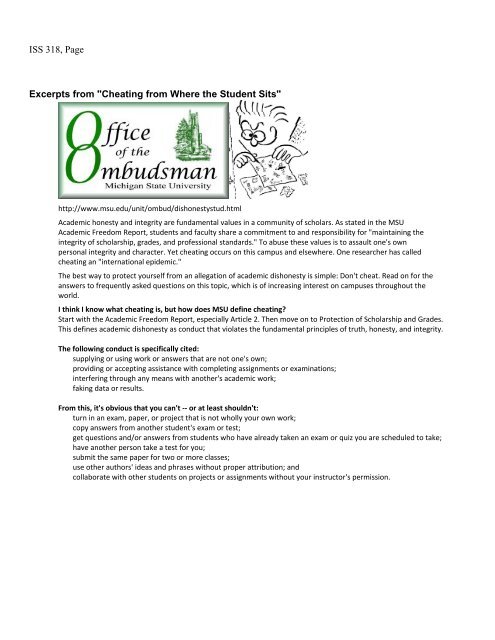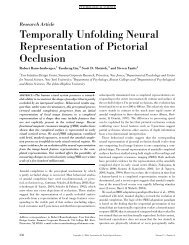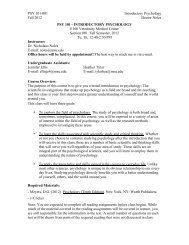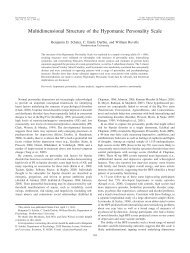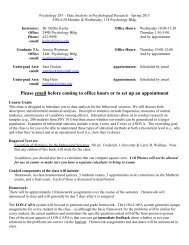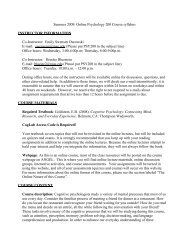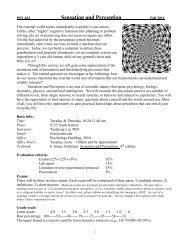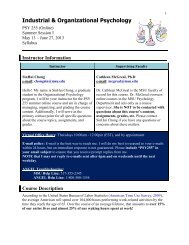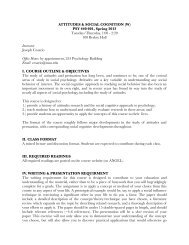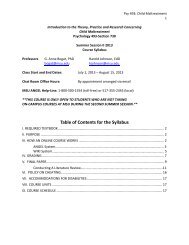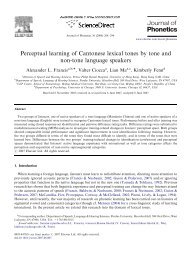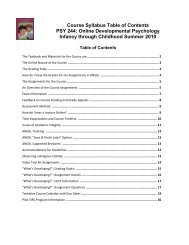Course Syllabus Table of Contents ISS 318: Lifespan Development ...
Course Syllabus Table of Contents ISS 318: Lifespan Development ...
Course Syllabus Table of Contents ISS 318: Lifespan Development ...
You also want an ePaper? Increase the reach of your titles
YUMPU automatically turns print PDFs into web optimized ePapers that Google loves.
<strong>ISS</strong> <strong>318</strong>, Page<br />
Excerpts from "Cheating from Where the Student Sits"<br />
http://www.msu.edu/unit/ombud/dishonestystud.html<br />
Academic honesty and integrity are fundamental values in a community <strong>of</strong> scholars. As stated in the MSU<br />
Academic Freedom Report, students and faculty share a commitment to and responsibility for "maintaining the<br />
integrity <strong>of</strong> scholarship, grades, and pr<strong>of</strong>essional standards." To abuse these values is to assault one's own<br />
personal integrity and character. Yet cheating occurs on this campus and elsewhere. One researcher has called<br />
cheating an "international epidemic."<br />
The best way to protect yourself from an allegation <strong>of</strong> academic dishonesty is simple: Don't cheat. Read on for the<br />
answers to frequently asked questions on this topic, which is <strong>of</strong> increasing interest on campuses throughout the<br />
world.<br />
I think I know what cheating is, but how does MSU define cheating<br />
Start with the Academic Freedom Report, especially Article 2. Then move on to Protection <strong>of</strong> Scholarship and Grades.<br />
This defines academic dishonesty as conduct that violates the fundamental principles <strong>of</strong> truth, honesty, and integrity.<br />
The following conduct is specifically cited:<br />
supplying or using work or answers that are not one's own;<br />
providing or accepting assistance with completing assignments or examinations;<br />
interfering through any means with another's academic work;<br />
faking data or results.<br />
From this, it's obvious that you can't ‐‐ or at least shouldn't:<br />
turn in an exam, paper, or project that is not wholly your own work;<br />
copy answers from another student's exam or test;<br />
get questions and/or answers from students who have already taken an exam or quiz you are scheduled to take;<br />
have another person take a test for you;<br />
submit the same paper for two or more classes;<br />
use other authors' ideas and phrases without proper attribution; and<br />
collaborate with other students on projects or assignments without your instructor's permission.


